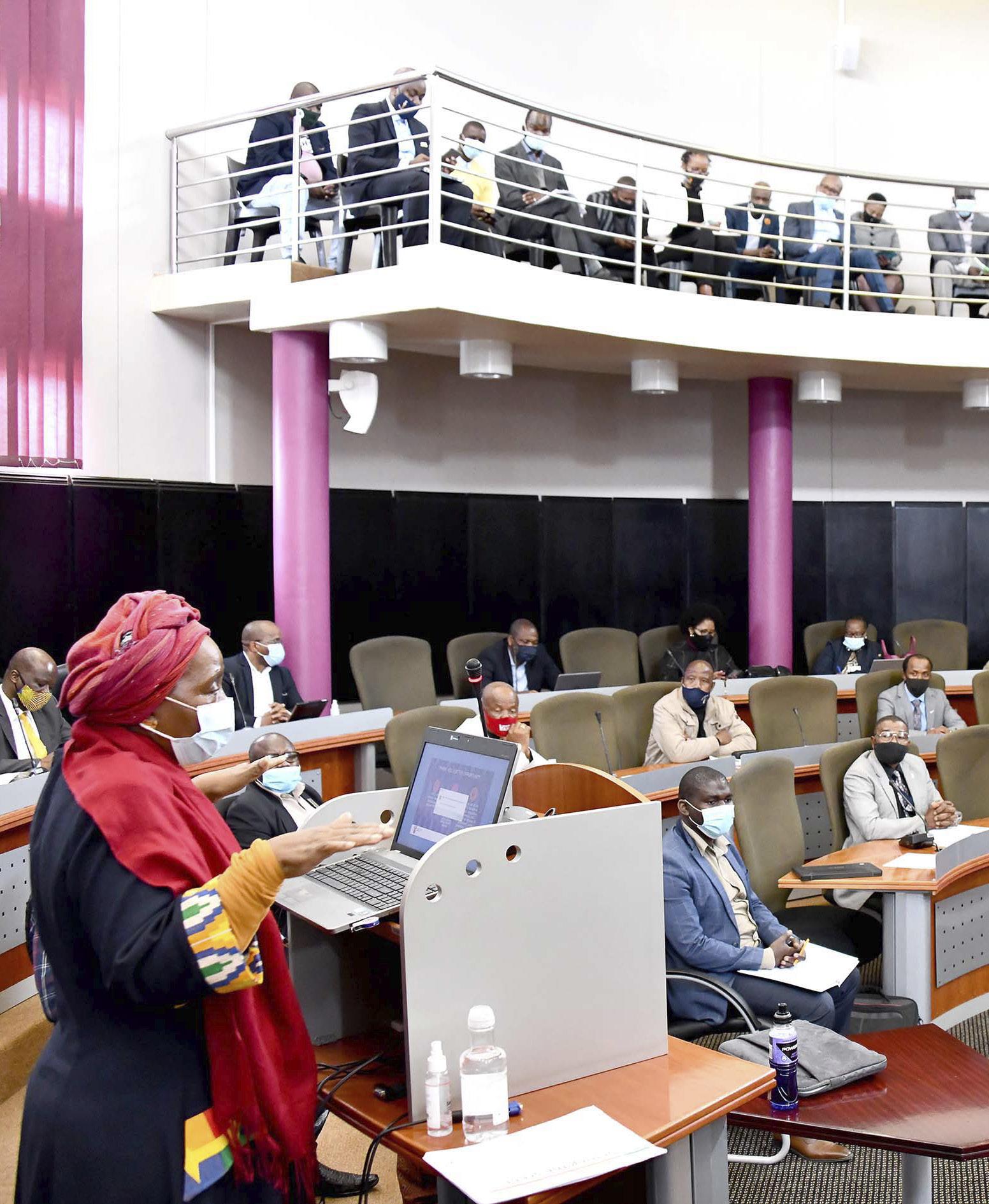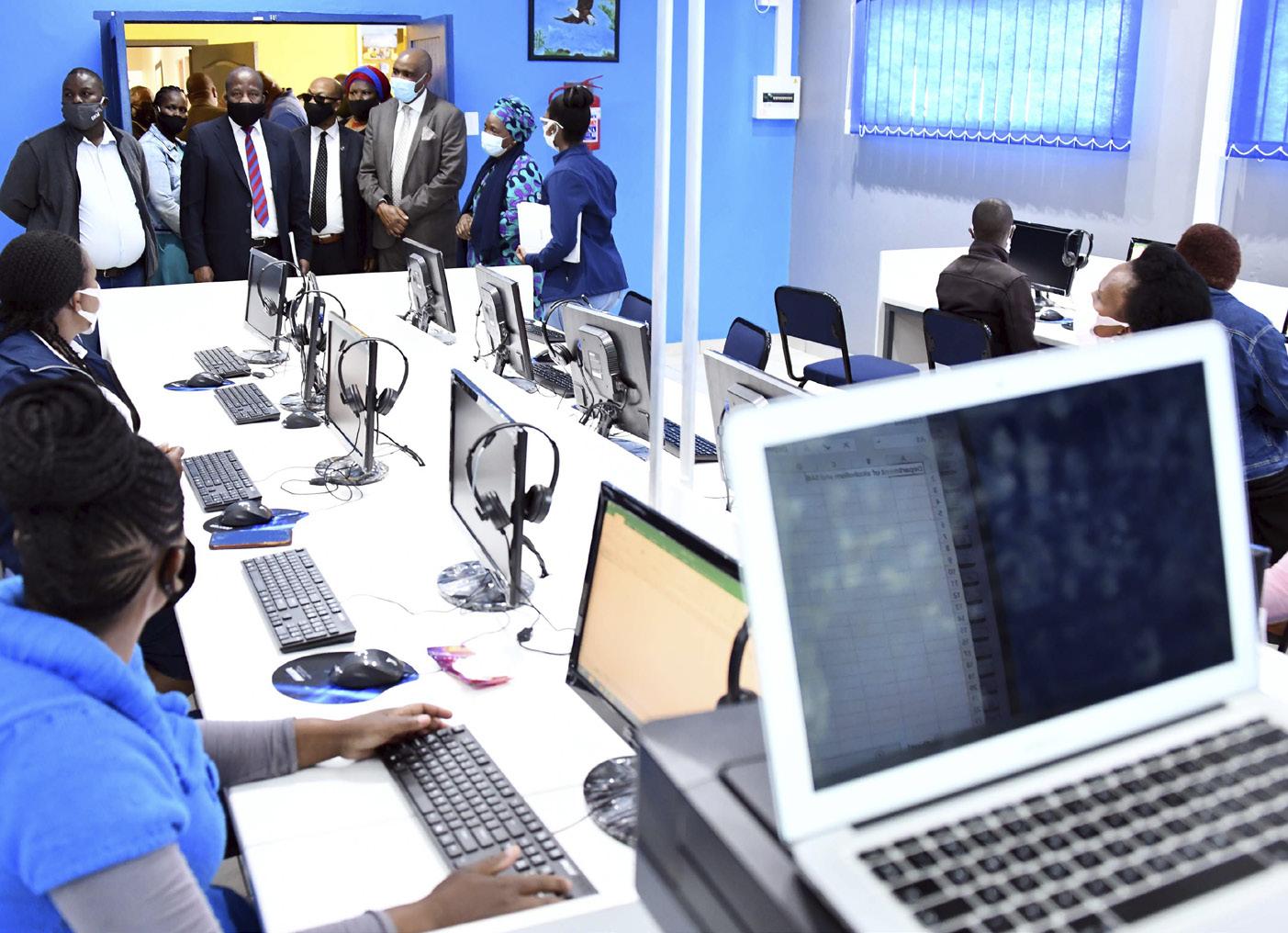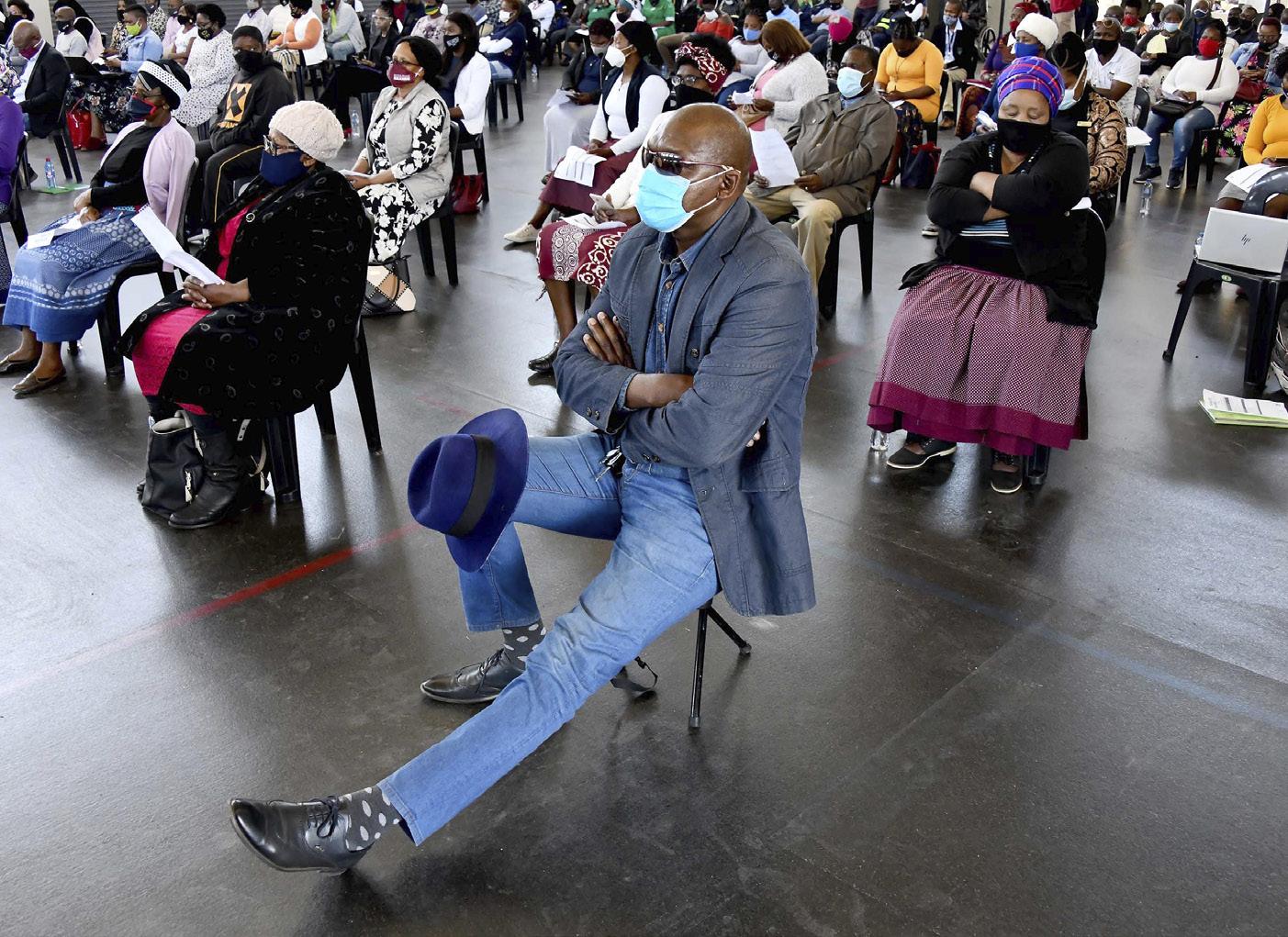
5 minute read
DISTRICT DEVELOPMENT MODEL
a new integrated planning model for Cooperative Governance to improve the face of local government
Advertisement
During the 2019 Presidency Budget Speech, the Honourable President, Mr. Cyril Ramaphosa identified the “pattern of operating in silos" as a challenge which led to “lack of coherence in planning and implementation which has made monitoring and oversight of government's programmes difficult". The consequence has been non-optimal delivery of services and diminished impact on the triple challenges of poverty, inequality and employment.
The President further called for the rolling out of “a new integrated district based approach to addressing our service delivery challenges and localised procurement and job creation, that promotes and supports local businesses, and that involves communities."
The District Development Model (DDM) aims to improve coherence and impact of government service delivery with focus on 44 Districts and 8 Metros around the country as development spaces that can be used as centres of service delivery and economic development, including job creation.
Following the approval of the model by government structures, including Cabinet, the President then piloted it in 2019 in two Districts and one Metro namely; OR Tambo District for its rural element, Waterberg District for its mining element and eThekwini Metro which brings in an element of a metro. The District/Metro spaces offers the appropriate scale and arena for intergovernmental planning coordination.
The 44 Districts and 8 Metros are developmental spaces (IGR Impact Zones) and strategic alignment platforms for all three spheres of government where the One Plan for each space guides and directs all strategic investments and projects for transparent accountability.

The One Plan is an intergovernmental plan setting out a long-term strategic framework to guide investment and delivery in the 52 district and metropolitan space.
All 52 plans will harmonise and create interrelated, interdependent development hubs supported by comprehensive detailed plans.
In September 2020, the Minister of Cooperative Governance and Traditional Affairs, Dr Nkosazana Dlamini Zuma launched the Waterberg District Hub during her DDM working visit. District hubs are established to drive the formulation and the implementation of a ‘One Plan’ in each district or metropolitan space while ensuring that such hubs respond to the significant disparities across the 52 district/ metropolitan spaces.
The DDM is anchored on the development of a single plan per district/ metro known as “One Plan”. This long term plan will be broken down into, and aligned, with each electoral term.
It, in respect of the current term, confirms what is in existing plans, refines as necessary and identifies key strategic gaps/issues. It expresses IG agreement, alignment, and commitments and is therefore not a detailed development plan. It has been adopted collectively by all three spheres of government and stakeholders as an IGR and social compact which emphasises shared understanding of the space, agreement on priorities, common vision, measurable outcomes, realistic targets and commitments. This plan is meant to be jointly developed and agreed to by all spheres of government.
The development and approval of the One Plan involves a series of collaborative intergovernmental planning sessions reflecting on research, evidence and solutions for the 52 developmental spaces. The development and implementation of the One Plan(s) will be overseen by allocated DDM Political Champion(s) supported by Intergovernmental Technical Teams.
Since the DDM was first piloted in 2019, three One Plans have been concluded as such; OR Tambo, Waterberg and eThekwini and implementation is currently underway.
Following the successful launch of the DDM, the honourable President, Cyril Ramaphosa assigned Ministers and Deputy Ministers to different districts as District Champions whose role is: • To provide strategic guidance for the development and implementation of the One Plan. • To contribute towards the institutional stabilisation of the allocated district and the reprioritisation process that seeks to respond to urgent institutional and governance gaps, and urgent development priorities outlined in the specific district profile. • To facilitate the District wide adoption of the One Plan through the various Inter–Governmental
Relations Structures (IGR), including its sign off and implementation.
To work in collaboration with line
Ministries and provide support to unblock and bring to the surface any

issues that may hinder progress in the implementation of the District
Development Model. • To collaborate with other champions and districts to maximise impact.
Municipal Infrastructure Support Agent (MISA), a component of the Department of Cooperative Governance whose mandate it is to render technical advice and support to municipalities so that they optimise municipal infrastructure provisioning, has a team of 222 technical staff including Engineers, Technicians, Planners and Young Graduates that are deployed to the priority districts to support the implementation of MISA’s mandate and the key projects.
Therefore MISA’s approach on institutionalizing the DDM is providing the technical support (with the assistance of the 222 technical staff members) at district level. MISA enters into an MOU with a district municipality and signs an integrated technical support program with the district and all the local municipalities. Each of the priority districts has an engineer who coordinates all infrastructure interventions and programs by various stakeholders to ensure alignment with the district service delivery needs.
MISA assists municipalities in these 4 key areas:
1. Planning:
Assist in the review/development of sector plans Assist in development of PMU, INEP, WSIG business plans/implementation plans Assist with project scoping report Review of technical reports for MIG funded projects Design development – review designs by the PSPs Review and development of O & M Plans
2. Procurement:
Offer support in development of procurement plans Review tender documentation and specifications Carry out due diligence on evaluation processes Review contract documents, SLAs and advise on suitable form of contracts Participate in SIPDM gates review Assess infrastructure that requires refurbishment

3. Implementation:
Participate in progress and site meetings Review progress payments Assist with contract management Assist with quality and budget control and monitoring Assist in consolidation and review of monthly reports 4. Operation and Maintenance:
Assess infrastructure that requires refurbishment
MISA will measure the successful implementation of the DDM through stakeholders sharing the same vision towards developing the district; commitment and cooperation by all parties/stakeholders towards achieving the objectives to grow the district (resources); and adherence to the DDM principle of working in a cohesive manner.











